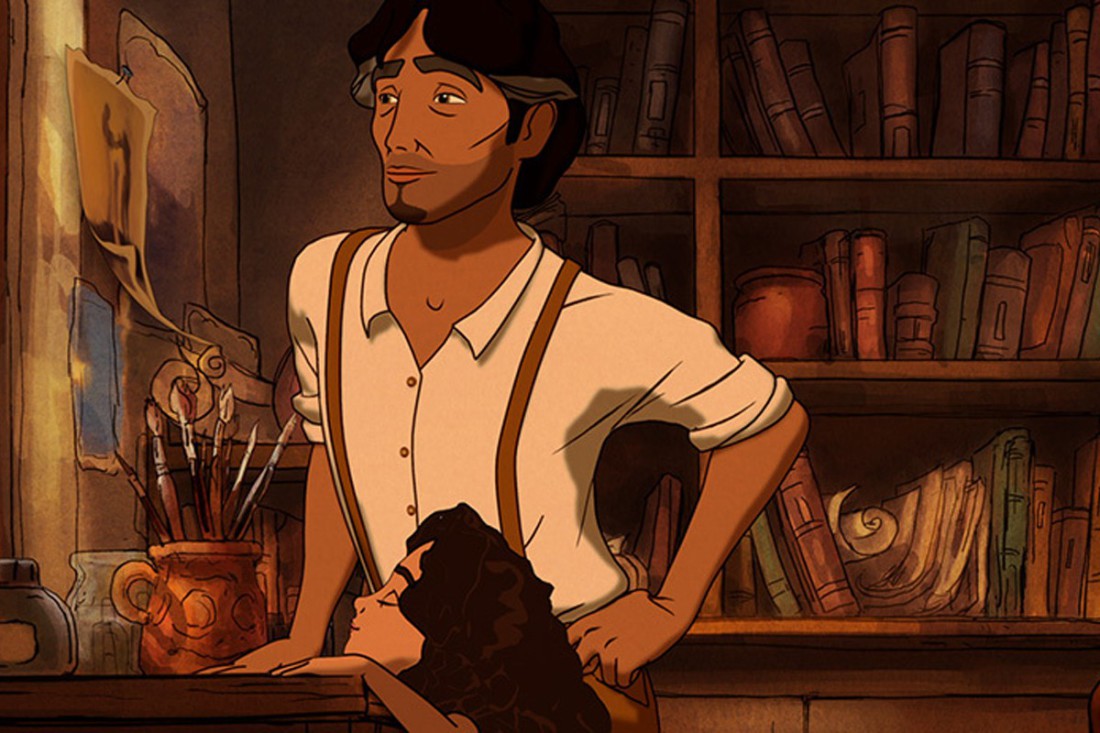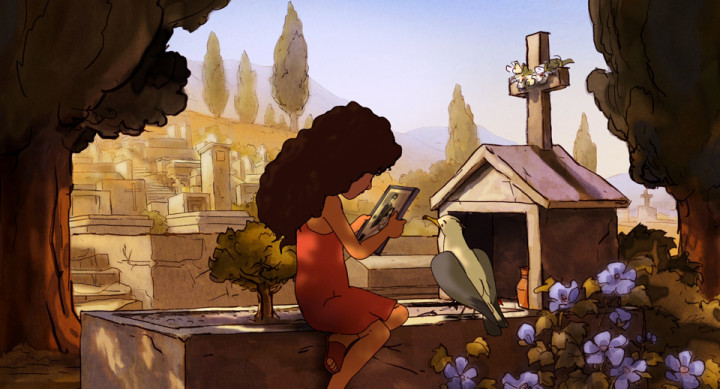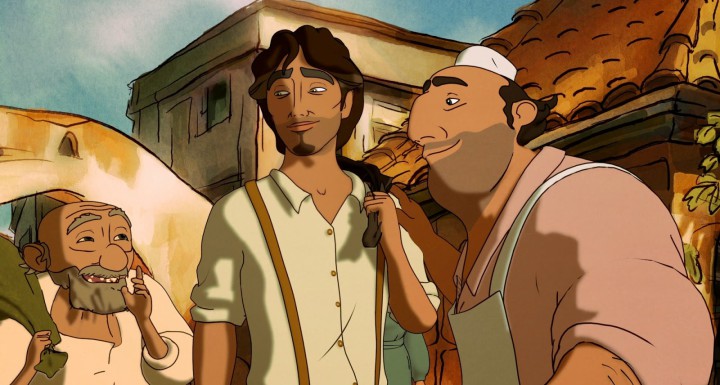I won’t say that Salma Hayek’s passion project of Kahlil Gibran’s The Prophet is bad, but I will say that it’s strictly for the faithful. For me, it mostly tended to confirm my suspicion that all those kids toting the book around in high school and college probably had Rod McKuen posters on their walls, too. I’m assuming there are those who find Gibran’s prose poetry on the human condition profound. It struck me — at least as presented here — as prolonged self-help bumperstickerese. Sound-bite philosophy 101. The movie reduces things to eight sermonettes wrapped in a framing story that is sort of taken from the book, but with, it seems, added melodrama and undercooked ideas about revolution. Something is almost certainly lost in the transition. Even so, I’m not even slightly tempted to see what might have been lost.
Part of the problem here lies with Liam Neeson, who is giving voice to Mustafa the prophet. Neeson plays the whole film like a man suffering from a severe lack of bran in his diet — as well as one who only saw the script at the recording session. Granted, it’s a pretty impossible role, since it mostly consists of him walking to a ship and being asked along the way to spout words of wisdom every time he runs into a new group of people — like some sort of penny-in-the-slot fortune-telling machine. It’s not much of a role, but even when the film turns into rather poorly developed political drama, Neeson never departs from his strained monotone. Then again, I’m not sure this is any worse than casting the home-grown, corn-fed John Krasinski as someone named Halim.
The film’s central idea is to turn the story over to eight very diverse animators for the individual depictions of Mustafa’s musings on matters various and sundry — freedom, marriage, death etc. This, as you may well imagine, results in a film of almost constant shifts in tone and style, more or less held together by the framing story, which has a pleasantly watercolor look. Less fortunately, it also has a strong Disney-like adherence to broad slapstick that seems more calculated to add some action to a fairly turgid movie than to actually incite laughter. Frenetic is not the same as funny. And there’s only so much mileage to be milked out of a small girl constantly running away from angry adults and knocking over fruit stands. The only alternative to this is lovesick stumblebum Halim falling down — a lot.
Still, I do suspect that The Prophet will appeal to lovers of the source book, which I presume is the primary target audience here. But as an introduction to Gibran’s famous book, I think it falls short. As presented here, Mustafa seems less profound than profoundly annoying. That cannot have been the idea the film was meant to convey. Rated PG for thematic elements including some violence and sensual images.
Playing at Carolina Cinemas.








I caught the very end of an NPR interview with Salma Hayak where I thought I heard her say something about this film being about the life of the Muslim Prophet Mohammed? Is there anything to this or did I hear completely out of context? Could this have been the author’s (or Hayek’s) way of getting around the Muslin proscription on showing any image of Mohammed?
I hardly think so. The guy is a prophet and his name is Mustafa.
This will be gone by Wed.